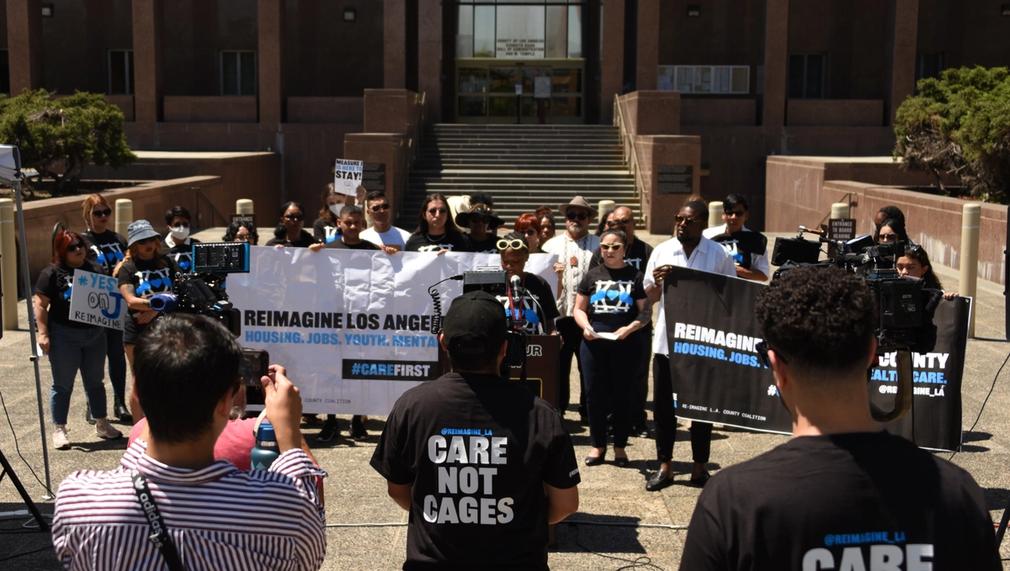Rapid Response Housing Stability Fund & Training Fellowship
Establish a fund to provide one-time cash stipends to individuals at risk of homelessness, while integrating them into a training program focused on policy implementation and community organizing.

What is the primary issue area that your application will impact?
Affordable housing and homelessness
In which areas of Los Angeles will you be directly working?
County of Los Angeles (select only if your project has a countywide benefit)
In what stage of innovation is this project, program, or initiative?
Pilot or new project, program, or initiative (testing or implementing a new idea)
What is your understanding of the issue that you are seeking to address?
Los Angeles County’s over-incarceration and housing crises disproportionately harm gender-marginalized people—especially cis women, transgender, and gender-expansive individuals—who face systemic discrimination and economic exclusion. Many live in precarious housing situations as eviction and homelessness rates rise sharply. Without immediate support, these individuals cycle through punitive systems that exacerbate instability and trauma. Addressing this crisis now is urgent to prevent further harm and to advance racial, gender, and economic justice. Our work centers those most impacted, provides direct aid and builds leadership to transform systems that deny housing as a basic human right, promoting resilience and dignity within marginalized communities.
Describe the project, program, or initiative this grant will support to address the issue.
Our Rapid Response Housing Stability Fund and Training Fellowship addresses LA County’s over-incarceration and housing insecurity by targeting gender-marginalized people—cis women, trans, and gender-expansive individuals—who are disproportionately harmed by systemic poverty and incarceration. Activities include: (1) distributing immediate, one-time unconditional cash stipends to individuals facing housing crises to prevent eviction, displacement, or institutionalization; (2) directly triaging and referring participants to housing, legal, and supportive services through our network of coalition and service partners; (3) accepting referrals from community partners to expand housing relief access; and (4) hosting a paid training fellowship for impacted individuals to build skills in housing policy, advocacy, organizing, and community education. What makes this initiative unique is the dual focus on crisis response and political empowerment, centering lived experience and rejecting bureaucratic barriers. As both a movement-building hub and service connector, we are positioned to mobilize grassroots power while meeting urgent needs. This approach builds community capacity and systems-change leadership from the ground up—turning short-term relief into long-term transformation.
Describe how Los Angeles County will be different if your work is successful.
If successful, our initiative will prevent housing loss for over 50 gender-marginalized residents in crisis, while equipping 10–15 directly impacted individuals with the skills to become housing justice advocates. In the short term, we will help to stabilize lives through direct cash aid, strengthen service coordination among partners, and train a new cohort of grassroots leaders. Long term, we envision a County where those most impacted by gender justice, incarceration and housing insecurity drive policy and budget decisions. We plan to scale this work by securing public and philanthropic investment to build a countywide gender justice network. Ivette Alé-Ferlito serves on the LA County Gender Responsive Commission and Public Safety Realignment Team; Megan Castillo serves on the CFCI Advisory Body. Their positions allow us to directly advocate for scaling public investments—demonstrating that housing security and systemic change are possible when led by those closest to the problem.
Approximately how many people will be impacted by this project, program, or initiative?
Direct Impact: 50
Indirect Impact: 1,500